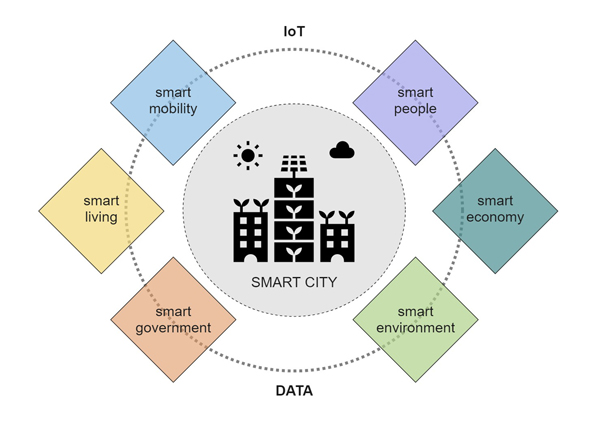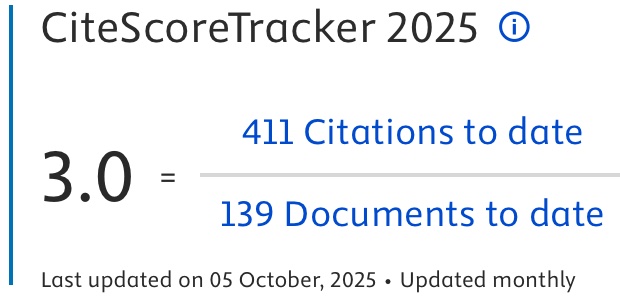Governance dashboards. Monitoring of key performance and aggregate indicators
DOI:
https://doi.org/10.19229/2464-9309/1232022Keywords:
key performance indicators, dashboard, digitalization, smart city, data driven storytellingAbstract
The recent increase of smart city policies around the world has meant that digital infrastructures play increasingly central roles for data collection and processing in contemporary city governance. The ‘dashboards’, as tools to communicate the state and development of the city through the display of data, can play an interesting role in supporting the implementation of initiatives by public administrations, as well as in making citizens more aware of them. Updating, transparency and meaning of the data, are critical points in the creation of effective dashboards, referring to shared key performance indicators. The aggregation and weighting of data and the use of data driven storytelling can transform the mere display of raw data into more understandable and easier to read concepts, however, not without some risk.
Downloads
Article Metrics Graph
References
Alrashed, S. (2020), “Key performance indicators for Smart Campus and Microgrid”, in Sustainable Cities and Society, vol. 60, pp. 1-9. [Online] Available at: doi.org/10.1016/j.scs.2020.102264 [Accessed 13 September 2022].
Barns, S. (2018), “Smart cities and urban data platforms – Designing interfaces for smart governance”, in City, Culture and Society vol. 12, pp. 5-12. [Online] Available at: doi.org/10.1016/j.ccs.2017.09.006 [Accessed 13 September 2022].
Block, T., Van Assche, J. and Goeminne, G. (2013), “Unravelling urban sustainability – How the Flemish City Monitor acknowledges complexities”, in Ecological Informatics, vol. 17, pp. 104-110. [Online] Available at: doi.org/10.1016/j.ecoinf.2011.04.001 [Accessed 13 September 2022].
Caragliu, A., Del Bo, C. and Nijkamp P. (2011), “Smart Cities in Europe”, in Journal of Urban Technology, vol. 18, issue 2, pp. 65-82. [Online] Available at: doi.org/10.1080/10630732.2011.601117 [Accessed 13 September 2022].
D’Amico, G., L’Abbate, P., Liao, W., Yigitcanlar, T. and Ioppolo, G. (2020), “Understanding Sensor Cities – Insights from Technology Giant Company Driven Smart Urbanism Practices”, in Sensors, vol. 20, issue 16, article 4391, pp. 1-24. [Online] Available at: doi.org/10.3390/s20164391 [Accessed 13 September 2022].
Hughes, S., Sarah, G. and Tozer, L. (2020), “Accountability and data-driven urban climate governance”, in Nature Climate Change, vol. 10, issue 12, pp. 1085-1090. [Online] Available at: dx.doi.org/10.1038/s41558-020-00953-z [Accessed 13 September 2022].
Jing, C., Du, M., Li, S. and Liu, S. (2019), “Geospatial Dashboards for Monitoring Smart City Performance”, in Sustainability, vol. 11, issue 20, article 5648, pp. 1-23. [Online] Available at: doi.org/10.3390/su11205648 [Accessed 13 September 2022].
Kitchin, R., Maalsen, S. and McArdle, G. (2016), “The praxis and politics of building urban dashboards”, in Geoforum, vol. 77, pp. 93-101. [Online] Available at: dx.doi.org/10.1016/j.geoforum.2016.10.006 [Accessed 13 September 2022].
Kitchin, R., Lauriault, T. P. and McArdle, G. (2015), “Knowing and governing cities through urban indicators, city benchmarking and real-time dashboards”, in Regional Studies, Regional Science, vol. 2, issue 1, pp. 6-28. [Online] Available at: dx.doi.org/10.1080/21681376.2014.983149 [Accessed 13 September 2022].
Kourtit, K and Nijkamp, P. (2018), “Big data dashboards as smart decision support tools for i-cities – An experiment on Stockholm”, in Land Use Policy, vol. 71, pp. 24-35. [Online] Available at: doi.org/10.1016/j.landusepol.2017.10.019 [Accessed 13 September 2022].
Lafortune, G., Fuller, G., Schmidt-Traub, G. and Kroll, C. (2020), “How is Progress towards the Sustainable Development Goals Measured? Comparing Four Approaches for the EU”, in Sustainability, vol. 12, issue 18, article 7675, pp. 1-24. [Online] Available at: doi.org/10.3390/su12187675 [Accessed 13 September 2022].
Locka, O., Bednarz, T., Leao S. Z. and Pettit, C. (2020), “A review and reframing of participatory urban dashboards”, in City, Culture and Society, vol. 20, article100294, pp. 1-10. [Online] Available at: doi.org/10.1016/j.ccs.2019.100294 [Accessed 13 September 2022].
Matheus, R., Janssen, M. and Maheshwari, D. (2020), “Data science empowering the public – Data-driven dashboards for transparent and accountable decision-making in smart cities”, in Government Information Quarterly, vol. 37, article 101284, pp. 1-9. [Online] Available at: doi.org/10.1016/j.giq.2018.01.006 [Accessed 13 September 2022].
Pluto-Kossakowska, J., Fijałkowska, A., Denis, M., Jaroszewicz, J. and Krzysztofowicz, S. (2022), “Dashboard as a Platform for Community Engagement in a City Development – A Review of Techniques, Tools and Methods”, in Sustainability, vol. 14, issue 17, 10809, pp. 1-33. [Online] Available at: doi.org/10.3390/su141710809 [Accessed 07 October 2022].
Sarikaya, A., Correll, M., Bartram, L., Tory, M. and Fisher, D. (2018), “What Do We Talk About When We Talk About Dashboards?”, in IEEE Transactions on visualization and computer graphics, vol. 25, issue 1, pp. 682-692. [Online] Available at: doi.org/10.1109/TVCG.2018.2864903 [Accessed 13 September 2022].
Schokker, J., Kamilaris, A. and Karatsiolis, S. (2022), “A Review on Key Performance Indicators for Climate Change”, in Wohlgemuth, V., Naumann, S., Behrens, G. and Arndt, H-K (eds), Advances and New Trends in Environmental Informatics – A Bogeyman or Saviour for the UN Sustainability Goals?, Springer, Cham, pp. 273-292. [Online] Available at: doi.org/10.1007/978-3-030-88063-7_17 [Accessed 13 September 2022].
UN – General Assembly (2015), Transforming our world – The 2030 Agenda for Sustainable Development, document A/RES/70/1. [Online] Available at: un.org/ga/search/view_doc.asp?symbol=A/RES/70/1&Lang=E [Accessed 13 September 2022].
Young, G. W. and Kitchin, R. (2020), “Creating design guidelines for building city dashboards from a user’s perspectives”, in International Journal of Human-Computer Studies, vol. 140, pp. 1-17. [Online] Available at: doi.org/10.1016/j.ijhcs.2020.102429 [Accessed 13 September 2022].
Young, G. W., Kitchin, R. and Naji, J. (2021), “Building City Dashboards for Different Types of Users”, in Journal of Urban Technology, vol. 28, issue 1-2, pp. 289-309. [Online] Available at: doi.org/10.1080/10630732.2020.1759994 [Accessed 07 October 2022].
Zygiaris, S. (2013), “Smart City Reference Model – Assisting Planners to Conceptualize the Building of Smart City Innovation Ecosystems”, in Journal of the Knowledge Economy, vol. 4, pp. 217-231. [Online] Available at: doi.org/10.1007/s13132-012-0089-4 [Accessed 13 September 2022].

Downloads
Published
How to Cite
Issue
Section
Categories
License
Copyright (c) 2022 Adriano Magliocco; Maria Canepa

This work is licensed under a Creative Commons Attribution 4.0 International License.
This Journal is published under Creative Commons Attribution Licence 4.0 (CC-BY).
License scheme | Legal code
This License allows anyone to:
Share: copy and redistribute the material in any medium or format.
Adapt: remix, transform, and build upon the material for any purpose, even commercially.
Under the following terms
Attribution: Users must give appropriate credit, provide a link to the license, and indicate if changes were made; users may do so in any reasonable manner, but not in any way that suggests the licensor endorses them or their use.
No additional restrictions: Users may not apply legal terms or technological measures that legally restrict others from doing anything the license permits.
Notices
Users do not have to comply with the license for elements of the material in the public domain or where your use is permitted by an applicable exception or limitation.
No warranties are given. The license may not give users all of the permissions necessary for their intended use. For example, other rights such as publicity, privacy, or moral rights may limit how you use the material.


















































































